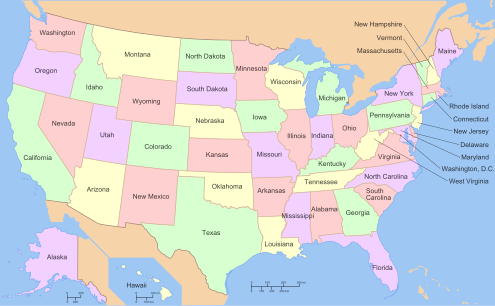
Free and fair elections allow people living in a representative democracy to determine the political makeup and future policy direction of their nation's government.
Voting increases the likelihood of a peaceful transfer of power. They help to ensure that losing candidates will accept the validity of the election's results and cede power to the new government.
Elections alone do not assure democracy since dictators can use the resources of the state to tamper with the election process.
Free and fair elections require:
- Universal suffrage for all eligible men and women to vote — democracies do not restrict this right from minorities, the disabled, or give it only to those who are literate or who own property.
- Freedom to register as a voter or run for public office.
- Freedom of speech for candidates and political parties — democracies do not restrict candidates or political parties from criticizing the performance of the incumbent.
- Numerous opportunities for the electorate to receive objective information from a free press.
- Freedom to assemble for political rallies and campaigns.
- Rules that require party representatives to maintain a distance from polling places on election day — election officials, volunteer poll workers, and international monitors may assist voters with the voting process but not the voting choice.
- An impartial or balanced system of conducting elections and verifying election results — trained election officials must either be politically independent or those overseeing elections should be representative of the parties in the election.
- Accessible polling places, private voting space, secure ballot boxes, and transparent ballot counting.
- Secret ballots — voting by secret ballot ensures that an individual's choice of party or candidate cannot be used against him or her.
- Legal prohibitions against election fraud — enforceable laws must exist to prevent vote tampering (e.g. double counting, ghost voting).
- Recount and contestation procedures — legal mechanisms and processes to review election processes must be established to ensure that elections are conducted properly.
Voting methods — varying by country and even within countries — include:
- Paper ballots — votes are marked on or punched through paper.
- Ballots with pictures of candidates or party symbols so that illiterate citizens may cast the correct vote.
- Electronic systems — voters use touch-screen or push-button machines.
- Absentee ballots — allowing those who will not be able to vote on election day to cast their ballots before the election.

On January 6, 2021, the United States Capitol Building in Washington, D.C., was attacked by a mob of supporters of then-U.S. president Donald Trump, two months after his defeat in the 2020 presidential election. They sought to keep Trump in power by occupying the Capitol and preventing a joint session of Congress from counting the Electoral College votes to formalize the victory of President-elect Joe Biden.
The attack was ultimately unsuccessful in preventing the certification of the election results. According to the House select committee investigating the incident, the attack was the culmination of a seven-part plan by Trump to overturn the election.
Trump and his cronies are charged with a conspiracy to violate civil rights, to defraud the government, the corrupt obstruction of an official proceeding, a conspiracy to carry out such obstruction, and seditious conspiracy.
Within 36 hours, five people died: one was shot by Capitol Police, another died of a drug overdose, and three died of natural causes, including a police officer. Many people were injured, including 174 police officers. Four officers who responded to the attack died by suicide within seven months. As of July 7, 2022, damages caused by attackers exceed $2.7 million.
Read More About The Attack on Wikipedia...
United States of America v. Donald J. Trump is a pending federal criminal case against Donald Trump, the president of the United States from 2017 to 2021, regarding his alleged participation in attempts to overturn the 2020 U.S. presidential election, including his involvement in the January 6 Capitol attack.
Trump questioned the results of the 2020 presidential election, claiming that election fraud had occurred through mail-in ballots, voting machine irregularities, "dead voters", and other irregularities. He also directly attempted to overturn the results of the election through a plot in which pro-Trump slates of fake electors would be created. Trump pressured then-vice president Mike Pence to count the fake electors instead of the electors certified by state legislators. The Department of Justice opened an investigation in January 2022 into the plot, expanding it to encompass January 6. In November 2022, Attorney General Merrick Garland appointed Jack Smith to lead a special counsel investigation encompassing the investigations into attempts to overturn the election and Trump's handling of government documents.
On August 1, 2023, a grand jury indicted Trump in the District of Columbia U.S. District Court on four charges for his conduct following the 2020 presidential election through the January 6 Capitol attack: conspiracy to defraud the United States under Title 18 of the United States Code, obstructing an official proceeding and conspiracy to obstruct an official proceeding under the Sarbanes–Oxley Act of 2002, and conspiracy against rights under the Enforcement Act of 1870.[1][2][3] The indictment mentioned six unnamed co-conspirators. It is Trump's third indictment and the first indictment against a U.S. president concerning actions while in office. Trump appeared at an arraignment on August 3, where he pleaded not guilty. The charge with the longest sentence carries a maximum of 20 years in prison.
Read More About The Prosecution on Wikipedia